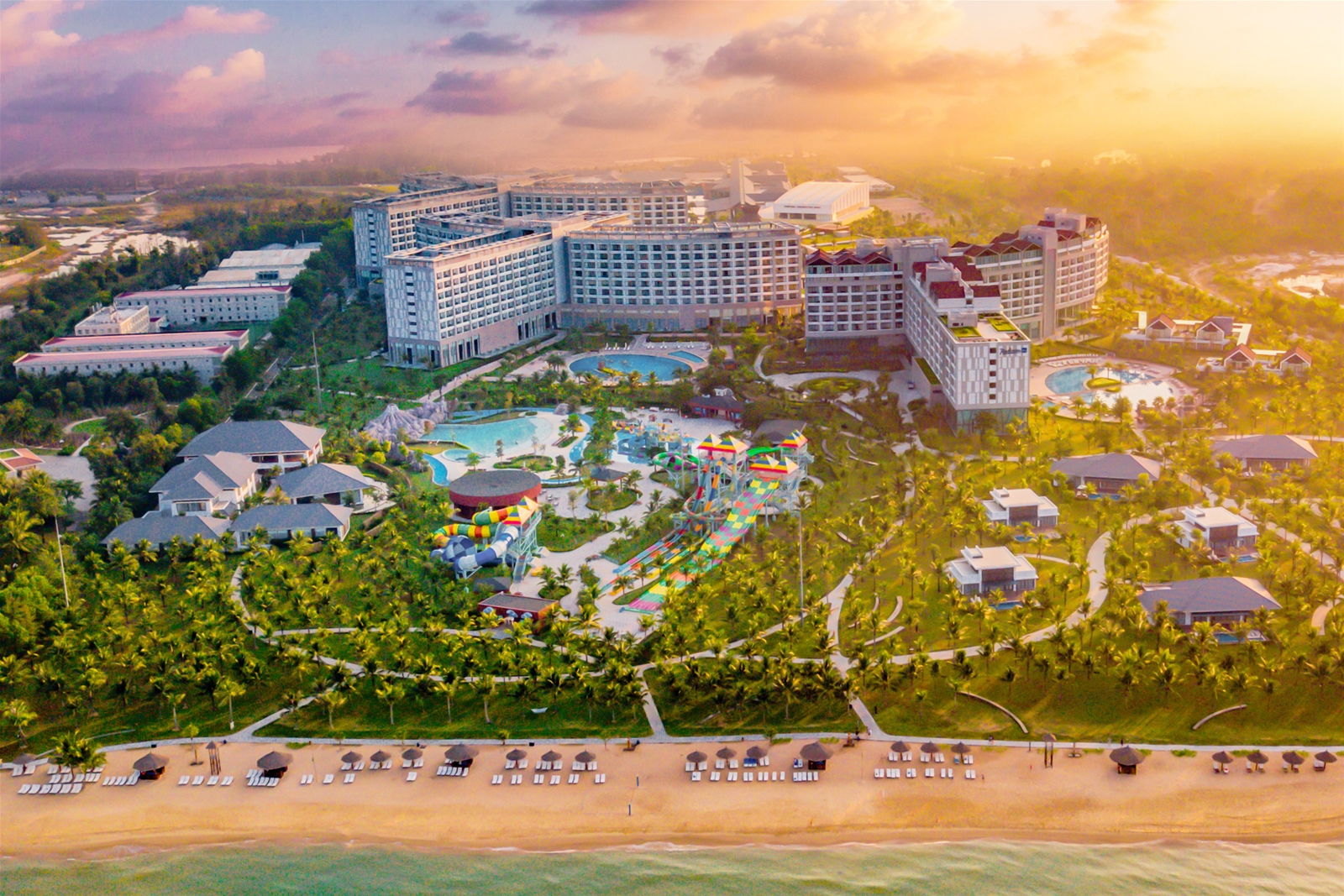
Nguyen Minh Tu just bought a condotel unit at the Peninsular Nha Trang project with investment of VND1.4 billion ($60,900). The Hanoian wanted a condotel for lease, and Nha Trang was chosen by her and her family. Tu now is receiving rental yield of around 8 per cent annually and she is satisfied with the figure.
In the past, buyers required almost the entire lease for their apartments. Condotels, meanwhile, have not been regulated in any policy from the government, and therefore their lifespan was limited to 50 years only.
The lack of a legal system brought a downturn in the market, but now many people aim to buy condotels for leasing regardless of the length of ownership.
“We bought this condotel, which means we are the owner of this unit, and we have the right to use it. The lifespan of the project will be extended when it has finished,” Tu said.
Nguyen Hoang, R&D director at DKRA Vietnam, admitted that the recent slower downturn of condotels was caused by the change in thinking of buyers that did not care much about the project’s lifespan. “Condotels are considered an investment. Their owners can take them for re-selling for benefit, or leasing for rental yield. Therefore, many buyers still buy it regardless of their limited lifespan,” Hoang confirmed.
Strong consumption was seen in projects located at tourism hotpots and coastal provinces where unit owners can enjoy a high rental yield. Moreover, Hoang said buyers can have a condotel for lease with very reasonable investment from VND1-1.5 billion ($44,000 to $65,200) per unit.
“You cannot buy any kind of property with such money, but you can have a condotel and get a stable income from leasing,” Hoang told VIR.
According to him, condotel projects especially are becoming much more valuable for buyers if they are composed in mix-use projects, consisting of many functions such as hotels, condotels, villas, trading, and leisure and entertainment facilities.
Nha Trang, Danang, and Phu Quoc Island are now leading destinations of condotels, with 16,000, 9,000, and 2,000 units, respectively.
Legal framework awaited
Condotels began to appear in Vietnam several years ago, with many developers setting up high-rise condo projects and selling to customers. Assigned operators are allocated for managing and operating instead of the condotel owners, with the benefits shared between the project’s developers and buyers.
However, the concept of condotel has never been mentioned in legal document in Vietnam. This has led to conflict regarding the definition of a condotel. It can be given a red book (land use rights certificate) if it is a condominium, and cannot if it is classed as a hotel room.
In April, Prime Minister Nguyen Xuan Phuc requested the Ministry of Construction (MoC) to set up and issue regulations to manage and operate condotels and officetels before the third quarter of 2019. These regulations, however, remain unseen so far.
According to Nguyen Trong Ninh, head of the Housing and Real Estate Market Management Department under the MoC, a legal framework for condotels and officetels relates to many other ministries and departments and local authorities.
“The MoC is actively setting up standards and regulations for condotels and officetels, but it takes time to complete,” Ninh said.
Due to the demand of condotels and officetels in Vietnam, a legal framework for those types of property is in urgent need, especially in the context that the number of tourists in Vietnam has been increasing on a yearly basis, according to Ninh.
Due to its complication, the MoC has also suggested that the prime minister permits the set-up of a decree to manage and operate condotels and officetels, instead of a circular as currently.

Future prospects
Dang Hung Vo, former Deputy Minister of Natural Resources and Environment, said that the very fast development of the tourism sector means that the country is retaining huge demand for both hotels and condotels.
Vietnam’s tourism property prices are still much lower than in other Southeast Asian countries like Thailand. Meanwhile, Vietnam’s tourist growth rate is at more than 30 per cent per year, making it one of the global leaders, according to Vo.
“In the long term vision, condotel supply in Vietnam cannot exceed demand. The current downturn is a temporary situation only and it will take off in the coming time when the legal framework is finished,” Vo said.
Meanwhile, Nguyen Tran Nam, chairman of the Vietnam Real Estate Association, said that many condotel developers do not require a red book for their condotels.
Economist Nguyen Tri Hieu also suggested that the government should release a legal framework soon, so that both developers and buyers can have access to banks to invest in this type of property.
Vietnam welcomed 12.9 million foreign visitors in the first nine months of 2019, an on-year rise of 10.8 per cent, according to the General Statistics Office (GSO).
In September alone, the number of foreign holidaymakers to Vietnam was estimated at 1.56 million. The GSO’s figures released that the number of foreign arrivals from Asian nations saw the highest increase of 12.5 per cent.
Vietnam’s tourism sector aims to receive 17.5-18 million foreign tourists in 2019 and serve 85 million domestic visitors, with expected the total revenue of VND700 trillion ($30.4 billion).
According to figures from Savills Vietnam, as one of the most popular destinations for Chinese tourists, Vietnam still has space to grow. In 2019 and 2020, with more than 30,000 rooms expected to come online in Ho Chi Minh City, Hanoi, Danang, Quang Nam, Khanh Hoa, Phu Quoc, Halong, and Quy Nhon, Vietnam has taken the leading position in the region, followed by Indonesia, Thailand, Malaysia, the Philippines, and South Korea.
Based on Savills Hotels’ 10-year Compound Annual Growth Rate analysis, international visitors to Vietnam are expected to reach 30 million by 2023, which is a robust outlook for future tourism in the country.


















